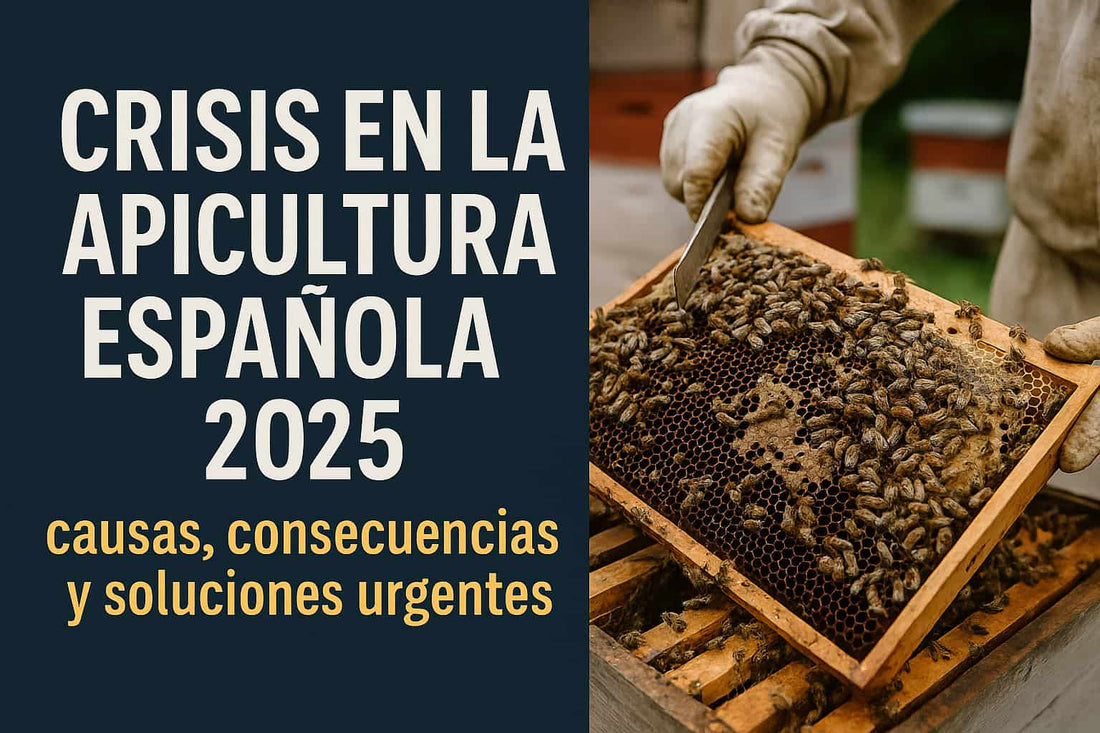Crisis in Spanish beekeeping 2025: causes, consequences and urgent solutions
Crisis in Spanish beekeeping 2025: causes, consequences and urgent solutions
Introduction to the current beekeeping context in Spain
Spanish beekeeping is entering a critical moment. With a thousand-year-old tradition, the care of the trees not only generates honey, polen and wax, but also leaves a vital papel in the cultivation of essential crops. In 2025, the sector faces one of its biggest crises, with historic production losses and a real challenge for the sustainability of thousands of beekeeping operations.
Main causes of the beekeeping crisis in 2025
- Extreme climate changes: irregular rains, chills and waves of heat.
- Reduction of natural flora: desertification and use of herbicides.
- Plagas and illnesses: varroa and oriental avispa.
- High production costs: transport, feeding, processing.
Collapse of honey and polen production
Polen production has fallen by 40% in many regions, and spring honey has practically not been produced. Regions such as Andalucía, Galicia and Castilla-La Mancha are the most affected.
Testimonials and reports from the beekeeping sector
“We want to produce a kilo of honey more than what we pay for it. — María Gómez, beekeeper in Toledo
Reaction of the market and cost of prices
Imported honeys are priced locally. Many consumers do not distinguish between Spanish honey and poorly labeled foreign foods.
Ecological impact: how do trees disappear?
More than 70% of food crops depend on cultivation. The bee crisis can result from food shortages and loss of biodiversity.
Public assistance: sufficient or ineffective?
The aids of the PAC or regional governments cannot stop the damage and do not allow time. More institutional support is required.
Paper from agricultural organizations and cooperatives
ASAJA, COAG and UPA drive campaigns, protests and legal proposals to save beekeeping.
New regulations regarding honey etiquette
From 2024, the country of origin and the porcentajes must appear on the label. However, surveillance continues to be weak.
Solutions proposed by experts
- Climatically adaptive beekeeping
- Colmenas inteligentes con IoT
- Flora melífera diversificada
- Improved genetics in resistant trees
Cases of outcome in the face of the crisis
Transhumanized people in Galicia and resilient cooperatives in León demonstrate that local innovation is possible.
Can urban beekeeping be part of the solution?
Initiatives in Madrid and Barcelona show how the urban landscapes educate and preserve.
Importance of local consumption and national honey
Buying honey from "España" origin and buying it directly from the product is essential to reverse this situation.
The future of beekeeping: ¿profesión en peligro?
El relevo generacional escasea. If not, thousands of beekeepers could abandon the office.
How to contribute as a citizen to slow down the crisis
- Buy certified Spanish honey
- Avoid pesticides in your garden
- Apoya asociaciones locales
- Planta flores para abejas
Frequently asked questions about the 2025 beekeeping crisis
Why did production slow down so much? Climate, flora and illnesses.
How do you know if a Spanish honey? Review etiquette and origin.
What can I do to help? Buy local, educate, protect politicians.
Conclusion: An urgent call to protect beekeeping
Spain is experiencing a silent emergence. Saving the trees is saving the field, biodiversity and our food safety. Actuar is a shared responsibility.
- apicultores en peligro
- apicultura ecológica
- apicultura en España
- apicultura sostenible
- apicultura urbana
- avispa oriental España
- ayudas apicultura 2025
- biodiversidad y abejas
- caída producción miel
- cambio climático y abejas
- crisis apicultura 2025
- crisis del polen
- etiquetas miel origen
- futuro de las abejas
- miel española
- miel importada China
- miel local España
- polinización cultivos
- salvar las abejas
- varroa en colmenas



























